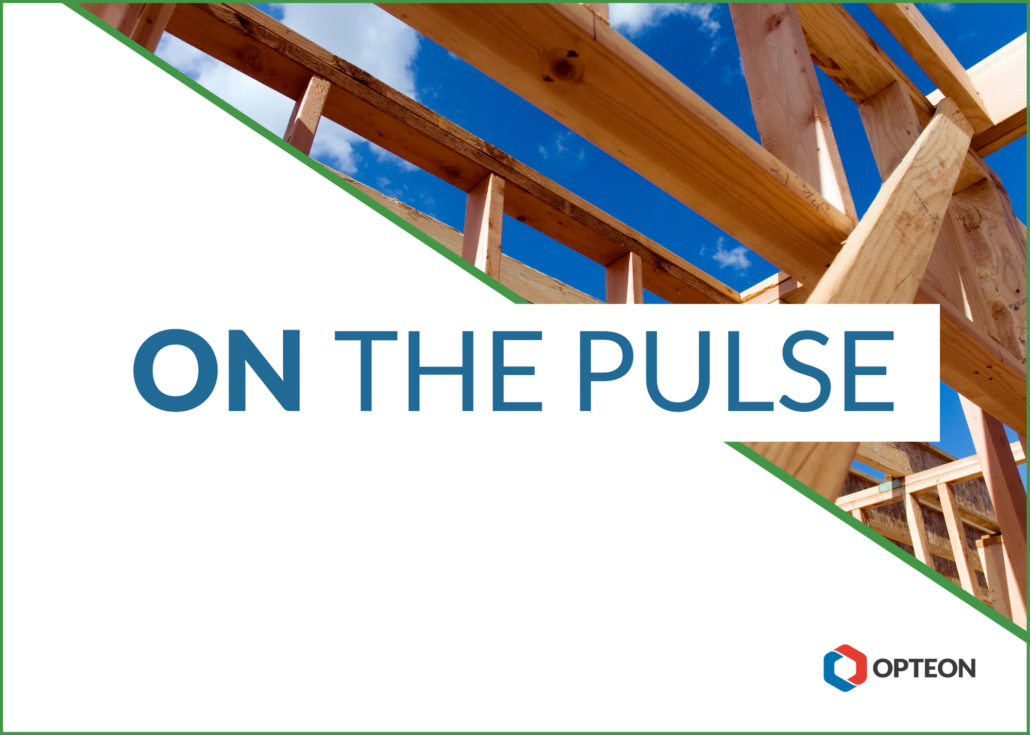Rising Construction Costs put Additional Squeeze on Unit Development Feasibilities
Newsletter

By Julian Hawkins, Senior Valuer, Melbourne
Rising construction costs and COVID-19 caused major economic disruption through 2020 and 2021. However, the period of falling property prices was short-lived. National sales volumes rose 37.7% in the 12 months to February 2022. Transaction volumes through the month of February remained elevated at an estimated 57,427, which is 46.1% above the previous five-year February average. National clearance rates averaged 72.4% in the four weeks to February 27th, down from 78.8% in the equivalent period of 2021. Clearance rates are expected to trend lower amid softer housing value growth.
Renewed confidence in the market through the second half of 2020 and through 2021 resulted in a surge in demand for land suitable for redevelopment for smaller unit developments (2-20 units) and larger land subdivisions. The success or otherwise of a development project is inherently volatile and a result of:
- the price paid for the site
- planning approval for the site
- construction costs and timeframe for construction
- consumer demand/price point for the units/apartments
- off-the-plan sales/rate of sales
- lending restrictions, regulatory restrictions and government policy
- interest rates and other holding charges, and
- broader changes in the economic climate and property market sentiment.
Construction cost risk
Shortages of labour and materials in the building sector continue to add pressure to development projects with the increased cost of labour and materials adding to supply chain issues and extending construction and project delivery timelines.
In a recent article in The Age, The Master Builders Association said 98% of its members are having their profits squeezed or are losing money. As the price of timber, steel, concrete and other construction materials has soared, deliveries are delayed for up to six months.[1]
Victoria’s Supply Chain Review “found that significant delays and shortages in sourcing timber were the result of unprecedented demand for construction in response to rebuilding our society post-bushfires, and the economic stimulus packages provided by governments around the world to boost post-COVID recovery. At the same time, there have been disruptions in global trade and maritime freight due to border closures and port congestion, hampering efforts to import additional building materials.”[2]
Over the past six months, Opteon has seen increases of up to 30% in contract bill prices and significant delays in the supply of materials that are impacting the timing of projects. In one case, the building contract amount increased by $220k over a five-month period for a three-unit development, with no change to the proposed product.
Similarly, timeframes quoted in building contracts are being extended even for smaller unit developments. We are typically seeing townhouse development timeframes move from 270-365 days, out to now 420-450 days.
The price of development land
The original purchase price of development land is a key factor in the feasibility of projects facing rising construction costs and lengthy delays. For example, those who purchased development land through 2020 and early into 2021, may have some buffer against rising construction costs and supply change issues. This is due to a corresponding increase in unit values through this period. However, where the land was purchased through the peak of the market in later 2021 and into 2022, the increased construction costs and material delays, added to the increased land costs, may not be off-set by a corresponding increase in the end unit value. This can result in a feasibility or project-related site assessment being negatively affected, leading to lender hesitance and the requirement for developers to inject more up-front equity.
Off-the-plan sales
Consumer appetite is product and location specific, but there still appears to be a strong demand for larger townhouses in premium locations. Other factors such as sustainability ratings can add appeal for buyers.
Demand for off-the-plan apartments appears to be easing, suggesting apartment developments are a relatively risky proposition at the moment.
As shown in the graph below, Opteon is valuing fewer ‘off-the-plan’ apartments every quarter, which indicates that purchase volumes are dropping. In the two biggest markets, New South Wales and Victoria, valuation volumes have been dropping since Q2 2019 (Apr-Jun 2019) and Q1 2021 respectively.
Interestingly, the percentage of valuations that did not support the contract purchase price has been on a downward trend in NSW since Q3 2019 and in Victoria since Q1 2021. These downward trends correlate quite closely with those in the volume of valuations.
Looking ahead
While land values remain strong, there is a possibility that rising construction costs and interest rates will create a lag effect on prices as developers become more cautious about feasibility prospects. This was anticipated by the Housing Industry Association(HIA) in 2021, which predicted Australia’s construction starts will drop to 125,030 in FY23.[3]
The alternate view is that many future-looking developers will continue to landbank, recognising the limited supply of land available for development. These developers will also be banking on: a) the likelihood of supply chain and worker demand issues resolving in the 1-2 years it takes to get a planning permit issued; and b) increased demand from foreign investors and a rise in population levels, which will lead to a boost in demand.
 Author
Author
Julian Hawkins
Senior Valuer - Residential Development
DISCLAIMER
This material is produced by Opteon Property Group Pty Ltd. It is intended to provide general information in summary form on valuation related topics, current at the time of first publication. The contents do not constitute advice and should not be relied upon as such. Formal advice should be sought in particular matters. Opteon’s valuers are qualified, experienced and certified to provide market value valuations of your property. Opteon does not provide accounting, specialist tax, investment or financial advice.
Liability limited by a scheme approved under Professional Standards Legislation.
[2] https://www.vic.gov.au/supply-chain-review
[3] https://constructiondaily.news








